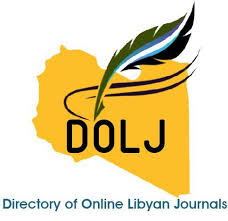The influence of extrinsic work factors on job satisfaction among the workers in Misurata medical center, Misurata, Libya
DOI:
https://doi.org/10.54361/10.26719/LJM18-1.04Keywords:
Job satisfaction, extrinsic factors, workers, Misurata medical centerAbstract
Background: Satisfaction of job among employees in health care is an important tool to measure the improvement of quality in healthcare services. Reduced satisfaction level may lead to increasing of turnover of staff and absence from the work, which has great impaction on the efficiency and effectiveness of services in healthcare. The aim of this study was to assess the influence of extrinsic work factors on job satisfaction among the employees in Misurata medical center. Methodology: A Cross-sectional study using a self-administrated questionnaire was conducted among 234 randomly selected workers at Misurata medical center in Libya. Results: Out of 260 distributed questionnaires, 234 of them were returned, which represents a response rate of 90%. A total of 234 workers comprising of 154 (65.8 %) were male and 80 (34.2%) were female workers. The findings indicate with exception of co-workers relationship, low proportions of job satisfaction varies from 23% to 52% were determined among the employee regarding the other extrinsic job factors. However, the job satisfaction was significantly influenced by the age, education level, and job category as well as work experience among the employee (p < 0.001). Moreover, the job satisfaction was not significantly affected by gender and marital status of employees (p > 0.001). Conclusion: majority of employees in Misuarat medical center tended to be unsatisfied with their job. Active interventions are required to improve the job satisfaction and receiving better quality of care.
Downloads
References
Spector PE. Job satisfaction: Application, assessment, causes, and consequences: Sage; 1997.
Zhang Y, LePine JA, Buckman BR, Wei F. It's not fair… or is it? The role of justice and leadership in explaining work stressor–job performance relationships. Academy of management journal. 2014;57(3):675-97.
Poulston JM. Working conditions in hospitality: Employees' views of the dissatisfactory hygiene factors. Journal of Quality Assurance in Hospitality & Tourism. 2009;10(1):23-43.
Tzeng H-M. The influence of nurses’ working motivation and job satisfaction on intention to quit: an empirical investigation in Taiwan. International journal of nursing studies. 2002;39(8):867-78.
Robbins SS, Stylianou AC. Global corporate web sites: an empirical investigation of content and design. Information & Management. 2003;40(3):205-12.
Locke EA, Sirota D, Wolfson AD. An experimental case study of the successes and failures of job enrichment in a government agency. Journal of Applied Psychology. 1976;61(6):701.
Wood G, Yaacob A, Morris D. ATTITUDE TOWARDS PAY & PROMOTION IN THE MALAYSIAN HIGHER EDUCATION SECTOR. EMPLOYEE RELATIONS. 2004.
Kreitner R, Kinicki A, Buelens M. Organizational Behaviour (second European edition). McGawHill, London. 2002.
Greenberg J, Baron RA. Behavior in organizations: Understanding and managing the human side of work: Univerza v Mariboru, Ekonomsko-poslovna fakulteta; 1997.
Hashim MJ, Osman I, Alhabshi SM. Effect of intellectual capital on organizational performance. Procedia-social and behavioral sciences. 2015;211:207-14.
Deshmukh N, Raj P, Chide P, Borkar A, Velhal G, Chopade R. Job Satisfaction Among Healthcare Providers in a Tertiary Care Government Medical College and Hospital in Chhattisgarh. Cureus. 2023;15(6).
Linge TK, Mutinda J. Extrinsic Factors that Affect Employee Job Satisfaction in Faith Based Organizations. Journal of Language, Technology & Entrepreneurship in Africa. 2015;6(1):72-81.
Lee Y-j. Comparison of job satisfaction between nonprofit and public employees. Nonprofit and Voluntary Sector Quarterly. 2016;45(2):295-313.
Cooper CL. The challenges of managing the changing nature of workplace stress. Journal of Public Mental Health. 2006;5(4):6.
Armstrong M. A handbook of human resource management practice: Kogan Page Publishers; 2006.
Stringer C, Didham J, Theivananthampillai P. Motivation, pay satisfaction, and job satisfaction of front‐line employees. Qualitative Research in Accounting & Management. 2011;8(2):161-79.
Bishwajit M, Khumyu A, Boonyanurak P. Relationships between organizational commitments, supervisory support and job satisfaction of nurses in a public specialized hospital, Bangladesh. Bangladesh Journal of Medical Science. 2016;15(1).
SUHAIMI A, MULUD ZA, AHMAD SK. FACTORS CONTRIBUTED TO JOB SATISFACTION AMONG NURSES WORKING AT TERTIARY HOSPITALS IN THE KLANG VALLEY: AN ADAPTATION OF THE HERZBERG'S THEORY. Journal of Sustainability Science and Management. 2023;18(6):135-48.
Carrillo-García C, Solano-Ruíz MdC, Martínez-Roche ME, Gómez-García CI. Job satisfaction among health care workers: the role of gender and age. Revista latino-americana de enfermagem. 2013;21:1314-20.
Palazoğlu CA, Koç Z. Ethical sensitivity, burnout, and job satisfaction in emergency nurses. Nursing ethics. 2019;26(3):809-22.
Tarcan M, Hikmet N, Schooley B, Top M, Tarcan GY. An analysis of the relationship between burnout, socio-demographic and workplace factors and job satisfaction among emergency department health professionals. Applied nursing research. 2017;34:40-7.
Chilipweli PM, Basinda N, Msilaga EV, Tuli T, Elias E, Konje E, et al. Assessment of Working Environment and Satisfaction Among Health Care Workers In Sengerema District Mwanza, Tanzania. medRxiv. 2023:2023.05. 15.23290008.
Downloads
Published
Issue
Section
License
Copyright (c) 2024 Muftah Abdulssalam Elbahloul, Khadija Ali Amer, Osama H. Almajdoub, Sana Mokhtar Alghennai (Author)

This work is licensed under a Creative Commons Attribution-NonCommercial-NoDerivatives 4.0 International License.
Open Access Policy
Libyan journal of medical Research (LJMR).is an open journal, therefore there are no fees required for downloading any publication from the journal website by authors, readers, and institution.
The journal applies the license of CC BY (a Creative Commons Attribution 4.0 International license). This license allows authors to keep ownership f the copyright of their papers. But this license permits any user to download , print out, extract, reuse, archive, and distribute the article, so long as appropriate credit is given to the authors and the source of the work.
The license ensures that the article will be available as widely as possible and that the article can be included in any scientific archive.
Editorial Policy
The publication of an article in a peer reviewed journal is an essential model for Libyan journal of medical Research (LJMR). It is necessary to agree upon standards of expected ethical behavior for all parties involved in the act of publishing: the author, the journal editorial, the peer reviewer and the publisher.
Any manuscript or substantial parts of it, submitted to the journal must not be under consideration by any other journal. In general, the manuscript should not have already been published in any journal or other citable form, although it may have been deposited on a preprint server. Authors are required to ensure that no material submitted as part of a manuscript infringes existing copyrights, or the rights of a third party.
Authorship Policy
The manuscript authorship should be limited to those who have made a significant contribution and intellectual input to the research submitted to the journal, including design, performance, interpretation of the reported study, and writing the manuscript. All those who have made significant contributions should be listed as co-authors.
Others who have participated in certain substantive aspects of the manuscript but without intellectual input should only be recognized in the acknowledgements section of the manuscript. Also, one of the authors should be selected as the corresponding author to communicate with the journal and approve the final version of the manuscript for publication in the LJMR.
Peer-review Policy
- All the manuscripts submitted to LJMR will be subjected to the double-blinded peer-review process;
- The manuscript will be reviewed by two suitable experts in the respective subject area.
- Reports of all the reviewers will be considered while deciding on acceptance/revision or rejection of a manuscript.
- Editor-In-Chief will make the final decision, based on the reviewer’s comments.
- Editor-In-Chief can ask one or more advisory board members for their suggestions upon a manuscript, before making the final decision.
- Associate editor and review editors provide administrative support to maintain the integrity of the peer-review process.
- In case, authors challenge the editor’s negative decision with suitable arguments, the manuscript can be sent to one more reviewer and the final decision will be made based upon his recommendations.














